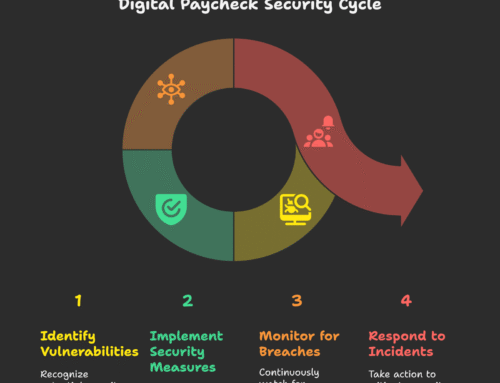Time and attendance systems play a vital role in managing many activities in the company. It’s a system used by employers to track and manage employees’ clocking in and out time and their time used within business hours. Essentially, it’s used in determining the salary due of employees, proper compensation for overtime work, managing paid time off, and much more.
Considering that one of the key aspects that ensure the smooth running of any business body is time and attendance management, an employer knows that a lot lies in the efficiency and functionality of these systems. Hence, it is crucial that at every turn, improvements are made whenever necessary to ensure their effectiveness.
Luckily, recent technological advancements helped ensure the time and attendance systems we have today offer a more seamless and stress-free operation. Yet as an employer, there are more steps and ways to enhance these systems.
If you are looking for ways to improve your own time and attendance system in your office, here are a few ways to go about it.
Image by elvtimemaster from Pixabay
1. Reduce Errors By Digitalizing
One of the crucial drawbacks of time and attendance recording is the capacity to document the employees’ time and attendance accurately. This drawback can be a result of human errors made during recording, sometimes made knowingly or unknowingly by employees.
In some cases, some employees may attempt to alter the inputs on the timesheets to favor themselves. Alternatively, others may often have issues remembering things, like the timeframe of their lunch and other vital aspects. Unfortunately, all of these can lead to inaccurate measurement of time and attendance within the organization and affect other areas such as salary payment, extra hour pays, and so on.
To reduce instances of error, having a digitalized time and attendance system in your organization can help in managing attendance efficiently. For one, it can automatically capture employees clocking in and out time impartially with little effort or input from them. You can check out various automated time and attendance software available in the market today that use automated means to keep track and avoid errors.
2. Simplify The Time And Attendance Capturing Process
When it comes to time and attendance systems, there is an endless option of them available. If your system is already worker-friendly, then you are in luck. However, if you find your workers struggling to utilize the system properly, you may need to simplify the process to avoid errors.
Simple and easy-to-use time and attendance systems can make clocking in and out of employees easy, and it further makes the overall results generated from the system more reliable. Furthermore, managers may no longer have an issue collecting accurate data for smooth processing of other aspects that depend on the time and attendance systems.
As an employer, you can simplify the system of self-service portals with a straightforward biometric attendance system or an easy-to-interact interface that can help reduce the error of input on the part of the employee.
3. Centralize And Unify Record Data
Putting together the time and attendance data of different departments can be complicated and may lead to several problems when not properly carried out. It could even worsen when older records are needed from various units and departments, and managers have difficulty tracking them down.
While most time and attendance systems can offer these records, some may not have the feature to conveniently collect the data from different units and analyze them as a whole for easy processing with the accounting and human resources departments.
One way to improve the time and attendance system is to centralize and unify the recorded data. Your office may do so by introducing unifying software into the system, creating a centralized platform for consolidating all records within a single system. As a result, it can make other processes of data entries and employee management easier to handle.
4. Use Cloud-Based Technology
Processes involving time and attendance-related data are not a one-time thing. It is a continuous process, requiring a constant outflow of information and data. To ensure continuity, you may consider implementing or integrating cloud-based storage technology. It can potentially boost time and attendance systems capacity and functionality while improving the business.
Such time and attendance systems that feature cloud-based technologies could make room for scaling and expansion, including increased staff and users, new accounts, new departments, and more. In addition, cloud-based technology can be a reference point to acquire, store, and access information seamlessly whenever needed.
Conclusion
Time and attendance systems are vital tools in the overall operation of any business organization. The information and data received from the system can serve several purposes, such as salary dispensation, worker output and services, employee data, and much more.
With that, an improvement in the system through the insights presented above does not only provide better timesheet data but also aims to simplify and improve other processes linked directly to the output from time and attendance systems.







Leave A Comment